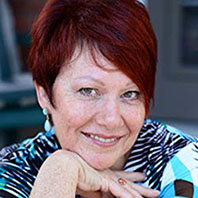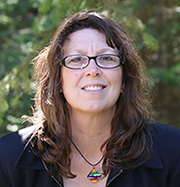
ally is on top of the world. She completed her masterpiece. After years of slaving away over her keyboard, staring at her mocking monitor for endless hours, the manuscript is finally ready.
A vision dances through Sally’s imagination of being on stage with Oprah, meekly accepting an award from her idol. The audience cheers as Oprah praises Sally for writing such a beautiful, heartfelt story.
She imagines wading through the throngs of fans clamoring for her autograph. In spite of tattle-tale gray hair, the retired bookkeeper sees herself as the next great American heroine, jet-setting across the country, selling millions of books during her countless book signing tours.
Ahh, the dreams of being a best-selling author...
Then reality sets in. Okay, here’s a 300-page manuscript; what do I do with it? How do I get my book published?
The answer magically appears on her television screen. That good-looking fellow on the commercial looks into the want-to-be author’s eyes and speaks directly to her, telling Sally he can make her dreams come true. It’s so simple: just send the manuscript to him, and he will transform his new friend’s words into the book that will change Sally’s life forever.
Sound Too Good to be True?
The simple answer: yes.
The pay-to-publish company advertising on TV will publish the book as they claim, but at a cost; and the finished product? Let’s just call it a disappointment.
The companies that charge exorbitant prices and deliver substandard books are known as vanity or predatory publishers. New authors fall victim to their clutches, mainly because they do not know any better.
Dan Peyton learned his lesson the hard way. He was taken in by the claims of Publish America, a vanity publisher many authors haven’t had great experiences with.
“It was my first book; and I didn’t check into them enough. They convinced me that my book was already so good, it didn’t need editing and published it right away.”
Publish America overpriced his book, continually sending him unwanted emails to purchase X number of copies of his own book. They said they would present the book to Hollywood producers, Oprah, or the like. That was extremely annoying, but Dan’s subconscious warning light flashed SOS signals when readers began to point out some glaring editing errors in his book.
Dan compared his original manuscript with the published edition and discovered these mistakes had been added after submission. The contract gave Publish America exclusive rights to editing, so the only recourse for the author was to purchase the company’s overpriced editing service.
Dan says, “Another realization that they were frauds was when I went to Barnes and Noble to look for my book. They claimed to be the number one distributor to B&N, yet no Publish America books were on the shelves. When I asked about getting my book in the store, they almost laughed me out of the place. Yet another lie in the long list of them.”

“They claimed to be the number one distributor to B&N, yet no Publish America books were on the shelves.”
(Photo: Dan Peyton)
Sound Too Good to be True?
Yvonne Hertzberger is a very intelligent lady. She takes the time to investigate all avenues before investing her time and money in any endeavor. This novice author thought she had conducted a thorough internet search of all the pay-to-publish options available to her and decided iUniverse offered the services she needed at the best cost.
Yvonne wrote of her experience with iUniverse during the month-long “Publishing Foul” series on the Indies Unlimited website.
I contacted them and opted for their top package, at a cost of roughly $1100.00. The package included two editorial reviews (also known as content edits) and the opportunity to earn their Editor’s Choice award.
Things started out swimmingly. My assistant proved very helpful, the first one. But by the time my book was published in 2009, I had gone through three [assistants], the other two successively less helpful.
I was pleased with the second editorial review but felt I wanted another kick at the can, so I purchased a third review, requesting a different set of eyes this time to give me a broader opinion. A rep then told me how close I was to getting that coveted Editor’s Choice award, but suggested my book needed a copyedit and a proofread to bring it up to snuff. I paid an additional $2000.00 (roughly) for those two services.
Yvonne received the Editor’s Choice award, but that was just the first hurdle. Next came the cover design. The iUniverse website stated the cover would be custom created by an artist, according to the author’s wishes. In reality, a graphic designer simply used stock photos and manipulated them into a cover.
When I challenged them, citing their own website, they hooked me up with their “head graphic designer.” I must admit she was good. I got a cover I truly liked, but still it was not what they advertised.
When the books arrived at Yvonne’s home (350 of them at a cost of $1700), she was thrilled. But the thrill waned when she discovered the marketing package she purchased didn’t exist. Instead, she had to purchase a press release (which she had to rewrite) and a list of newspaper and media contacts (which turned out to be worthless).
All sales came through my personal efforts. Literally, none were the result of the award or via browsers in their bookstore. And I had to push to be listed at Amazon.ca in spite of iUniverse’s promise at the outset to do so.
Then, to my horror, readers pointed out two inconsistencies in the plot the editors had not caught. Since then, many other editing errors have come to my attention. Was I steamed? You bet!

“To my horror, readers pointed out two inconsistencies in the plot the editors had not caught.”
(Photo: Yvonne Hertzberger)
How Did Vanity Publishers Get So Popular?
KS (Kat) Brooks has witnessed the changes in the publishing industry firsthand as both a traditionally published and self-published author. She is an authority in the business and freely shares her knowledge and expertise as a mentor, teacher, and as an administrator of the highly acclaimed author’s website, Indies Unlimited.
Kat began her writing career as a traditionally published author. She says, “At the time, that was the only choice. There was no such thing as self-publishing. You got published by one of the big publishers, or you didn’t get published.
“If an author paid to have his book published, he was blacklisted. That’s where the term vanity publishing originated,” explains Kat. “An author would have to be vain to think his book was so good that it had to be published and actually paid someone to do it.”
Vanity publishers grew in popularity as advances in self-publishing and the availability of print-on-demand became more accessible. The large publishing houses lost their stranglehold over authors; and more and more people pursued the easier path to publication, so they could experience the joy of being a published writer.
In turn, the number of pay-to-publish companies multiplied. As long as people willingly paid their prices, the industry flourished. That is, until the vanity publishers’ greed caught up with them. Now there are advocates, like Kat, and watchdog websites, such as Predators and Editors, Indies Unlimited, and Writer Beware, who warn new authors to think twice before signing a contract with a pay-to-publish publisher.
“A real publisher makes money off the books. A vanity or predatory publisher makes money off the author. They charge big bucks and do not provide the services they promise,” warns Kat. “Steer clear of them.”

“A real publisher makes money off the books. A vanity or predatory publisher makes money off the author.”
(Photo: KS Brooks)
Are All Pay-to-Publish Presses Out to Get You?
The answer: no.
Not all pay-to-publish companies are out solely for the money. There are some who honestly want to help authors publish their books. They strive to help the author with editing, formatting, creating a cover, and publishing; and to stay in business, they charge a fee for those services. The only problem is weeding out the good guys from the bad guys.
“There is a difference between vanity publishers and service publishers,” remarks Kat. “A service publisher is borderline okay. There is still a risk of getting a book that is not edited. You don’t know what you’re going to get. You still have to be responsible. You have to be vigilant and know who’s doing what to your book.”
Before engaging the services of a pay-to-publish company, Kat stresses, “Do your homework! Check them out thoroughly. Heed what books they have published and run a Google search using the publisher name and ‘scam’, ‘problem’, or ‘reviews’. You can also use Amazon’s ‘Look Inside’ feature to see how well the books are edited and look at the quality of the covers.”
A View From Inside a Service Publisher
Angela Hoy is the owner/publisher at BookLocker.com, a pay-to-publish company. She also runs WritersWeekly.com, a website that keeps authors/writers up-to-date on the publishing industry.
She believes that vanity and service publishers are the same thing. In both cases, you are paying for the services. “There is no shame in it, despite the negative ‘vanity’ term. Many authors have managed to land traditional contracts after ‘testing the waters’ for their book(s) through vanity publishing.”
The difference is the amount the authors pay and more importantly, what they get for their money. “There are good pay-to-publish companies with excellent reputations. It’s unfortunate that a few bad actors—Author Solutions (the largest), which owns Xlibris, iUniverse, Trafford, AuthorHouse, and many others—have given pay-to-publish a bad name.”
Angela advises authors to be very careful about which firm publishes their book. “Huge firms that subcontract work to call centers overseas should be avoided. You never know who you’ll be talking to about your book, and it seems author meatmarkets put less emphasis on quality and customer service than the smaller, truly service-oriented firms.”
She advises any and every author who is interested in pay-to-publish to “stick with the smaller, stable firms—ones that give authors one-on-one contact with the actual publisher.”
Angela claims BookLocker is not in this business to make money off the authors. “We break even on setup fees and earn our profits on book sales. That means, we and the author have a vested interest in book sales.”
That’s why not all books submitted to Angela are accepted for publication. It’s a process she has honed over the years to make sure both the publisher and author win.
Angela is quick to point out that using pay-to-publish is not for everyone. It is for the author who only wants to write and possibly promote his/her book. “Hiring a pay-to-publish firm to handle everything else is affordable (if you hire the right firm), and well worth all the avoided headaches. For them, this is the ideal way to publish a book.”

“Stick with the smaller, stable firms—ones that give authors one-on-one contact with the actual publisher.”
(Illustration: Angela Hoy)
Are There Any Other Alternatives?
There are a couple more publishing options to consider as well: self-publishing and independent presses.
Self-publishing is available to everyone. You do all the work yourself—hire an editor, make a cover, format the books—and keep all the royalties, as opposed to sharing the royalties with a publisher.
Kat recommends self-publishing. “With all the resources available online, an author no longer needs to rely on hiring a publisher. On Indies Unlimited, we have pages on editors, cover designers, and beta readers. There are also many other resources out there as well that will guide you through the process.”
The cost of self-publishing varies, but is always less than pay-to-publish. “The only thing you should pay for is editing and a cover. Those are a necessity,” KS emphasizes. “Even the most experienced authors need to have their books edited and have a professional looking cover.”
If the thought of doing all the work yourself overwhelms you, and you do not want to pay a publisher, there is the option of signing with a small or independent press. Kat explains, “They will edit, format, create a cover, and publish your book. Some will even do the advertising for you, and you don’t have to pay a darn penny! An independent press operates on the same principle as the larger publishing houses. They make their money off the readers, not the author, so they do all they can to make the book perfect and desirable to the reader.”
The only drawback to an independent publisher is the time factor. It can take from a few months to almost a year to get your book on the market.
Decisions, Decisions
There is more to being an author than just writing a book! Publishing is an essential part of the process; and for that, there are many options.
Kat strongly believes no one should ever pay to have their book published. Angela thinks pay-to-publish is an acceptable means of publication.
Who is right? There really is no right or wrong; it’s up to the individual author to decide which is best for herself. The important thing is to be happy with the decision.
***

Greta Burroughs has worked as a freelance writer since 2005. She has been published in print magazines and newspapers, as well as online via blogs and other cyber platforms. Greta enjoys learning new things by researching and writing about interesting topics many of us may not be familiar with. Whether it is health-related, historical, human interest, or an environmental issue, Greta is on the lookout for the stories begging to be discovered. You can usually find her typing madly away at her home in South Carolina, where she resides with her husband and three dogs. For more information, check out Greta’s website www.gretaburroughs.weebly.com.
-----
Enjoyed this article? Check out these related articles on WOW!:
Self-Publishing Mistakes I Made (And How I’m Fixing Them)
Divergent Paths to Publication
Self-Publishing Options
Self-Publishing: The Debate is Over
DIY Copyright for Self-Publishing
Creating Book Covers that Sell
Selling E-books: Five Authors Share Their Success and Marketing Strategies